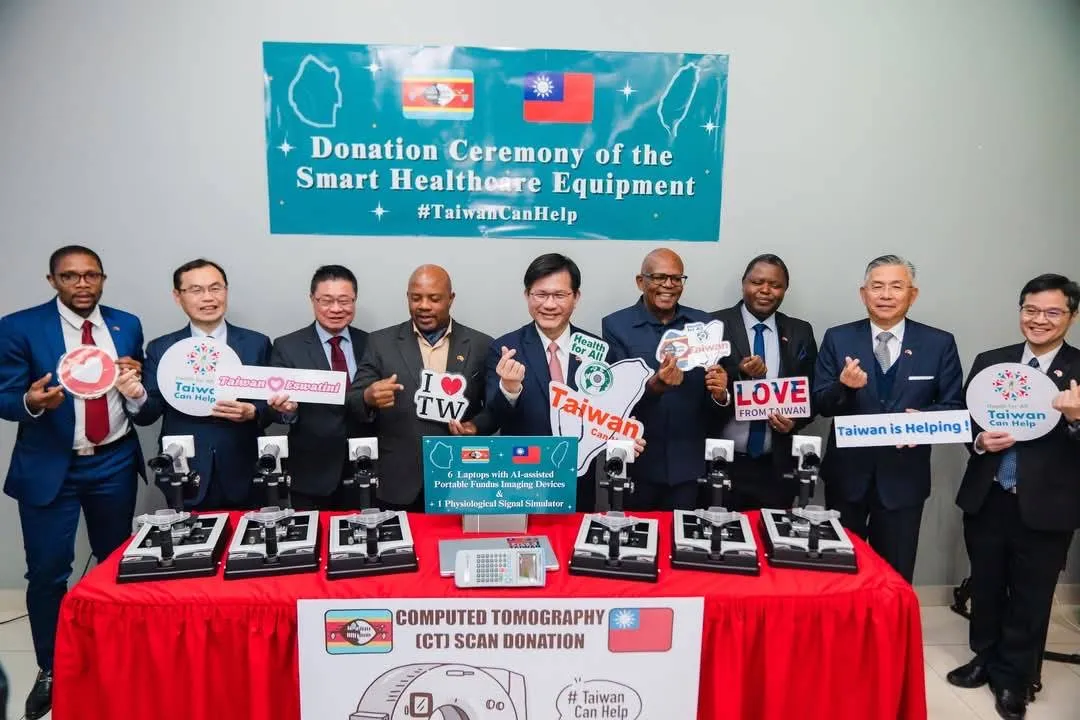2025-7-28

The Taiwan Technical Mission in Eswatini on July 9-10 held a two-day training workshop on the use of AI-assisted retinal imaging diagnostic devices. Minister of Foreign Affairs Lin Chia-lung presented six of the devices to Eswatini’s health ministry in April as part of Taiwan’s commitment to helping allies enhance their medical capacity through the use of advanced technology. Developed by Taiwanese firm Jinhong Technology, the devices will be used by Eswatini in the prevention and management of diabetes-related eye diseases.
The training workshop was attended by 16 healthcare professionals from both central and regional medical institutions in Eswatini, who will serve as seed instructors and support the implementation of the devices across six secondary and tertiary hospitals in the country.
The AI-enabled retinal imaging system makes use of edge computing capabilities, allowing it to function without an internet connection. This enables real-time analysis of retinal images, making the system user-friendly for clinical staff and reducing diagnostic delays. The system helps to address the severe shortage of ophthalmologists in Eswatini and supports early detection of diabetic retinopathy, in line with public health objectives emphasizing prevention over treatment.
TaiwanICDF Deputy Secretary General Peifen Hsieh noted that among Eswatini’s population of approximately 1.2 million, an estimated 100,000 people are living with diabetes. Due to limited medical resources, many patients lack proper care, leading to serious complications. In response, the TaiwanICDF launched the Project for Strengthening Metabolic Chronic Disease Prevention and Control Systems in the Kingdom of Eswatini in 2024. Through the project, the TaiwanICDF has collaborated with Eswatini’s Ministry of Health to improve coverage for diabetes and hypertension care, and to strengthen early complication screening.
Moving forward, the TaiwanICDF will continue introducing smart healthcare solutions to enhance the quality of medical services in Eswatini, safeguarding the health of Swazi people, and demonstrating tangible outcomes of Taiwan’s Diplomatic Allies Prosperity Project.
Article courtesy of Taiwan ICDF





